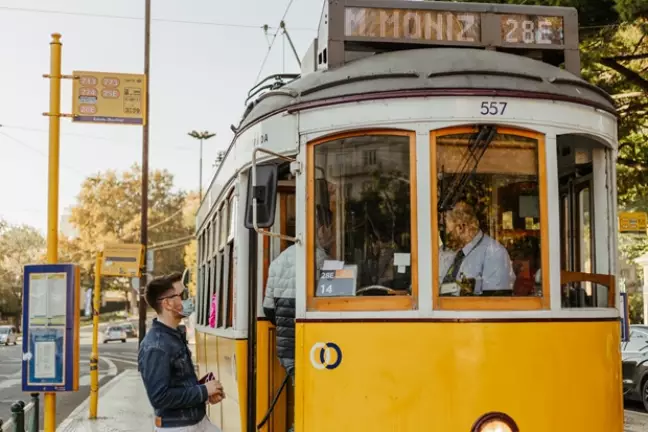Simplified rules for issuing Portuguese citizenship to descendants of Lusitanians were established by the new regulation of the Nationality Law, published in March. Since then, the Portuguese language has become a criterion for proving a link with the European country and requests for citizenship among Brazilians are on the rise.
In the last three months, the CEO of Martins Castro and lawyer, Renato Martins says that the number of requests in the international consultancy grew 40%. He explains that before the criteria were more subjective and included Portuguese personal documentation and trips to the country. With the regulation of the law, he believes that the trend is for more people to have access to the right of dual citizenship in the coming years.
It is estimated that there are five million Portuguese grandchildren in Brazilian territory. The survey is from the Portuguese communities. Research carried out over the last few decades by the Brazilian Institute of Geography and Statistics (IBGE) indicated that 10% of Brazilians claimed to have Portuguese ancestry, a percentage that, in a population of about 200 million people, would represent 20 million descendants, including children, grandchildren and great grandchildren.
For Martins, thousands of Brazilians still do not know about the right to Portuguese citizenship and he believes that the changes in the regulation will facilitate the dissemination of correct information. With the changes, the lawyer says that Brazilians who are grandchildren of Portuguese are exempt from proving a connection with the country and that proficiency in the Portuguese language is sufficient.
The grandchildren of Portuguese people can also apply for citizenship even if the ascendants, the parents, have not previously accessed the right. The lawyer also comments that there is no age limit and that interested parties must apply to the registry offices, which is the same as civil registration, in Portugal. Among the mandatory documents are certificates, such as the birth certificate, of the Portuguese ascendant that prove the relationship of this origin with the country and also certificates of absence of criminal record, nor condemnation with imprisonment equal to or greater than three years.
The grandson of Portuguese, Manaus businessman Bruno Pinheiro tried to locate the documents of his grandfather, who emigrated to the Amazon in the 19th century and raised a family in Manaus. But he still couldn't find his grandfather's certificates, such as his birth certificate, to prove his Portuguese origin.
The search for historical documents is one of the main difficulties for Brazilians of Portuguese descent. This happens because, at the end of the 19th century, the Portuguese arrived in Brazil without birth certificates and few had passports. Another factor that hinders the documentary search of these family members is the fact that until 1911 there was no civil registry in Portugal. Births and baptisms were carried out by the Catholic Church and, at the time, it was common to have 20 to 30 parishes per municipality or city.
For this reason, the lawyer and specialist in Private International Law, Thiago Huver, says that it is common to find groups of Portuguese descendants in the cities, who cannot prove their descent due to the lack of documentation. “Many know that the grandparents are Portuguese, but as these documents are no longer in the possession of the families, they cannot have documentary evidence of the birthplace of the Portuguese emigrant. This harms those who seek dual citizenship”.
Genealogist Gabriel Dias explains that the great mobility of the Portuguese to Brazil throughout the 19th century, between the years 1890 and 1920, generated a set of notes in the Brazilian and Portuguese public administrations, in notary offices, conservatories and also private records. Currently, these documents are spread across different locations in both countries and many descendants are unable to locate them.
With the aim of facilitating the document search process, the specialists developed an unprecedented database, with more than one million metadata. Gabriel Dias says that this data is based on information science and is allowing the location of key documents to prove the nationality of Portuguese family members. This is because technology has helped in the indexing and document search in archives and public bodies in Brazil and Portugal. According to Thiago Huver, the database is the result of almost two years of research and the application of new work methodologies in genealogical research for grandchildren of Portuguese people.
original link
